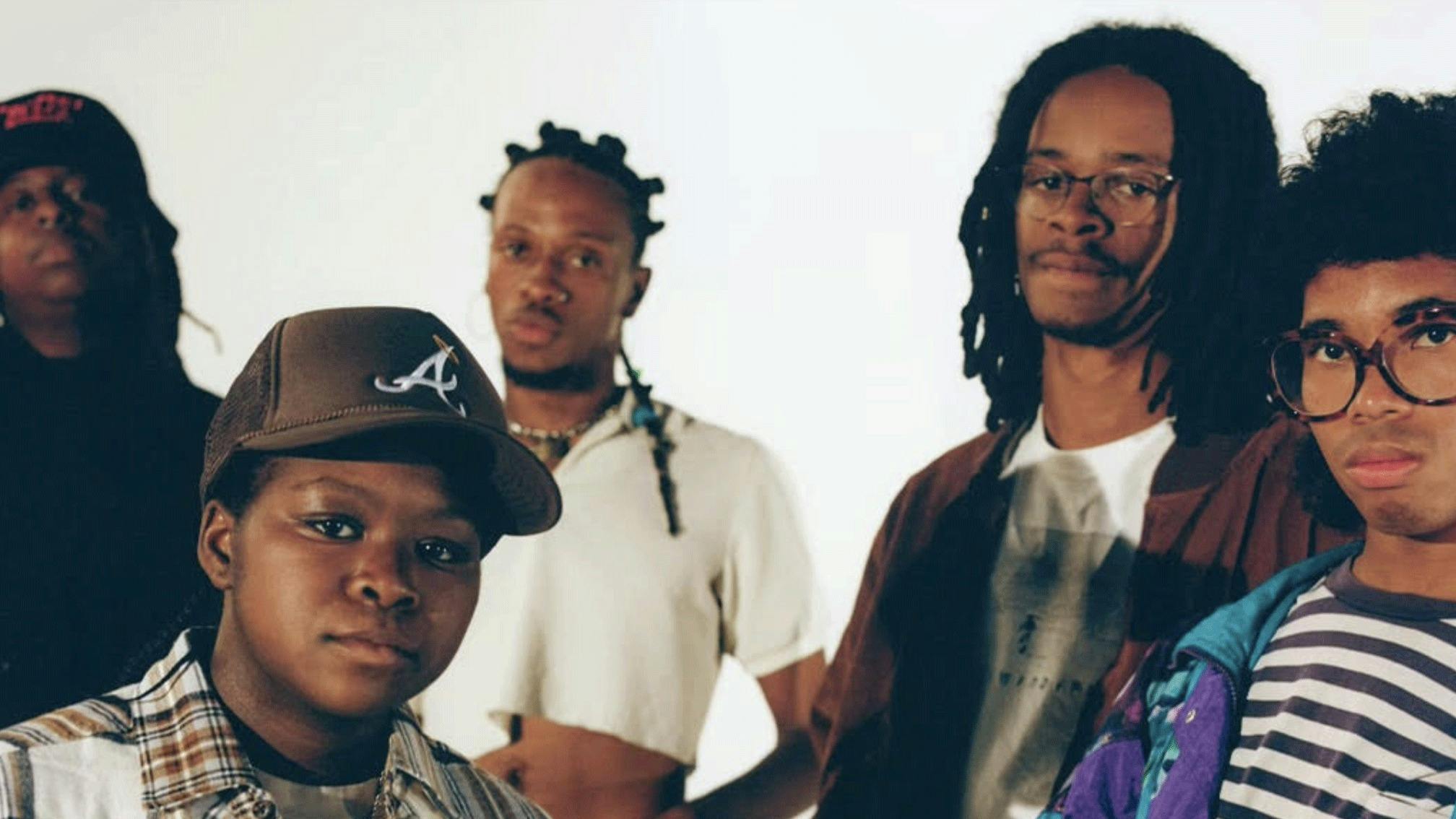Other than shaking fillings loose the overall effect on both EPs is to situate ZULU’s music on the spectrum of Black art, while also pushing for greater inclusivity and representation in a genre of music that is often overwhelmingly, and sometimes unwelcomingly, white. Anaiah gets that, but doesn’t totally buy the intentionality angle – it feels like a reach from someone else. There is weariness about the fact that it’s a talking point at all.
“It’s all culture to me,” Anaiah says. “You know, that’s really what it was. And then when it comes to bringing in a band where all of us are Black, that is an important thing but also people make it a lot bigger than it is. I guess only because it’s not the norm, and that is what’s the issue. It should be very normal. No-one would ever mention this for any sort of band if it had all white members in it. That’s my whole point. This has been an issue, and still is an issue, but I don’t say that outright – it kind of speaks for itself.”
Anaiah grew up in Los Angeles, picking up a guitar for the first time aged four or five. The instrument didn’t stick at first, but the drums absolutely did. He first encountered punk and hardcore from his father, who’d come up with the city’s first waves decades earlier. “My dad grew up out here,” he says. “A lot of the early stuff that I was intro'd to as a little kid was early ’80s hardcore and the Orange County punk bands, like TSOL, Adolescents and stuff like that.
“That was my early years, being into the old school, like the old-old-school, and going to see those bands out in Hollywood, because they still play. All those old LA, Orange County bands still play to this day, which is crazy. That’s really what it was like for me as a young teenager, and then there was the progression of getting into later ’80s stuff like Youth Of Today. From there it was about finding other bands, but it was easy because I already had a starting point.”
These days the Los Angeles scene is vibrant, stylistically varied and churning out new bands at a crazy rate. “Right now there’s a whole lot of bands. There’s a lot, a lot, a lot, a lot of bands,” Anaiah says. “I don’t want to say it’s almost too many, but there’s so many bands that pop up that I haven’t even heard that I’m like, ‘Man, it’s almost hard to keep up.’ But it’s a solid scene, it’s probably the most solid it’s been a minute, and it is kind of all over the place. I will say that.
“Within one scene, there’s so many different scenes, and it’s such a big place. There’s grindcore kids, there’s beatdown music, there’s kids that are still into Youth Crew and stuff. They don’t all go to the same shows. It’s not the most unified, I’ll admit, but if you want to get into a scene, there’s something for everyone.”
